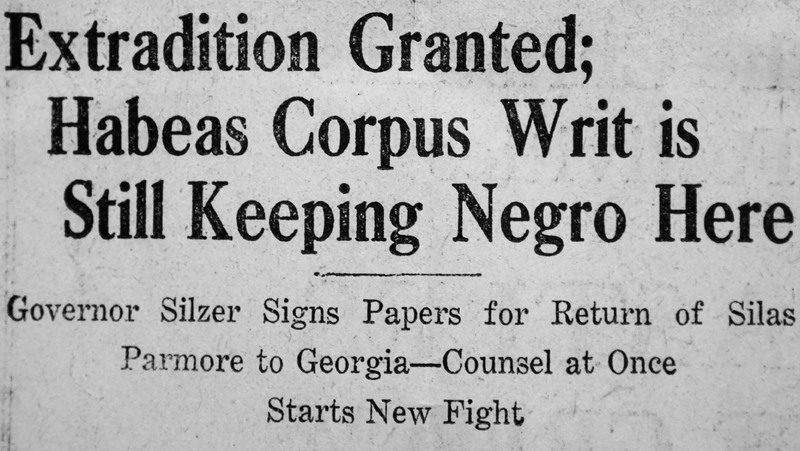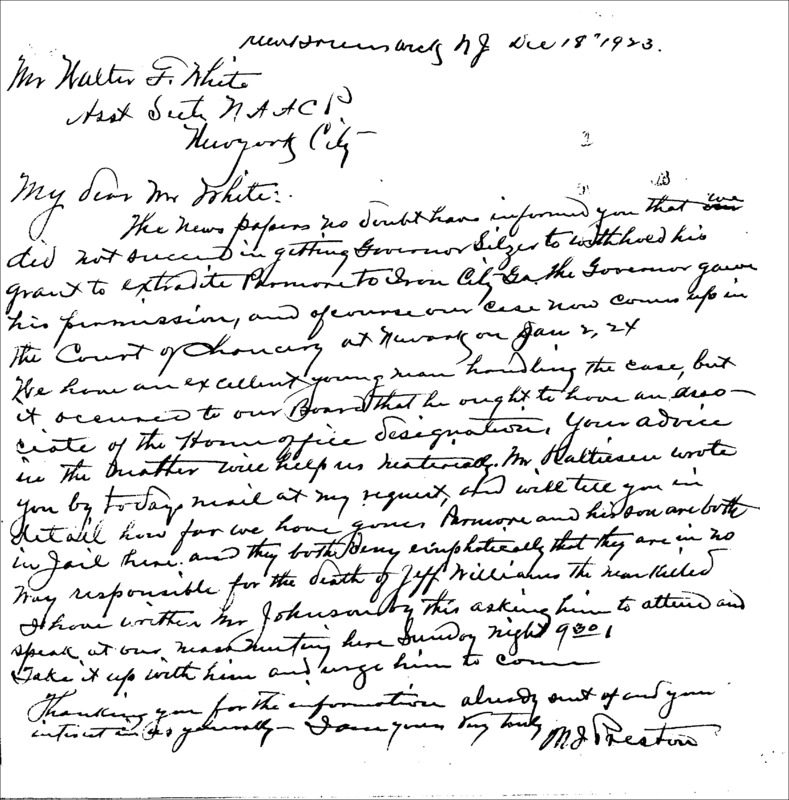Governor Silzer's hearing
On December 17, 1923, Governor George S. Silzer held a public hearing at the State House in Trenton to determine whether Silas Parmore should be extradited back to Georgia. Silzer, who was born in New Brunswick and ran a successful law practice there before turning to politics, agreed to the hearing under pressure from the New Brunswick NAACP.
Accompanied by both the Mayor and the Chief of Police of Iron City, Georgia, Middlesex County Prosecutor Joseph E. Stricker argued that Parmore could be ensured a fair trial in Georgia and that his extradition should be granted. Klemmer Kalteissen, accompanied by thirteen male and female delegates elected by the New Brunswick NAACP, argued that Parmore would certainly be lynched in Georgia and therefore denied his right to the due process of law protected by the Fourteenth Amendment. Kalteissen read from the NAACP’s magazine The Crisis and shared the statistic that between 1889 and 1918, 386 individuals had been lynched in the state of Georgia. Finally, Kalteissen petitioned the Governor to at least delay the granting of extradition until substantial proof could be furnished to indicate Parmore’s guilt.
Governor Silzer then read aloud his telegraph correspondence with the Governor of Georgia, Clifford M. Walker. Silzer asked Walker for his assurance that “Parmore is protected from violence and is given a fair trial.” Governor Walker replied, “I will guarantee that he will have a fair trial. The judge is a gentleman of the highest type and strictest integrity. Much of the notorious advertisement of unfair treatment in Georgia is slanderous propaganda.” Observers at the hearing noted that the reading of Walker’s telegram “brought forth sarcastic laughs from the colored spectators” in attendance.
Swayed by Walker’s assurances, Silzer ultimately signed the extradition papers but he stated that if Parmore did not receive a fair trial, any future extraditions to Georgia would be denied. Kalteissen immediately submitted a writ of habeas corpus, which allowed Parmore to remain in New Jersey until a new hearing could be held before the New Jersey Court of Chancery. New Brunswick NAACP member M. J. Preston wrote to Walter F. White, asking for assistance from the national office. On December 23, 1923, another mass meeting was held in New Brunswick, with local and national activists strategizing their next move.



